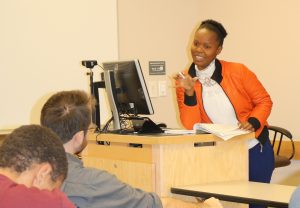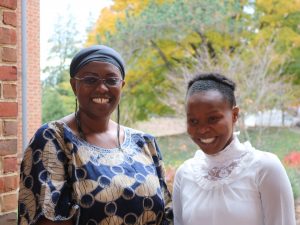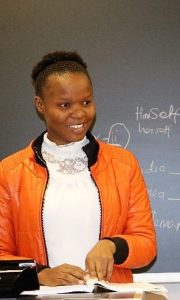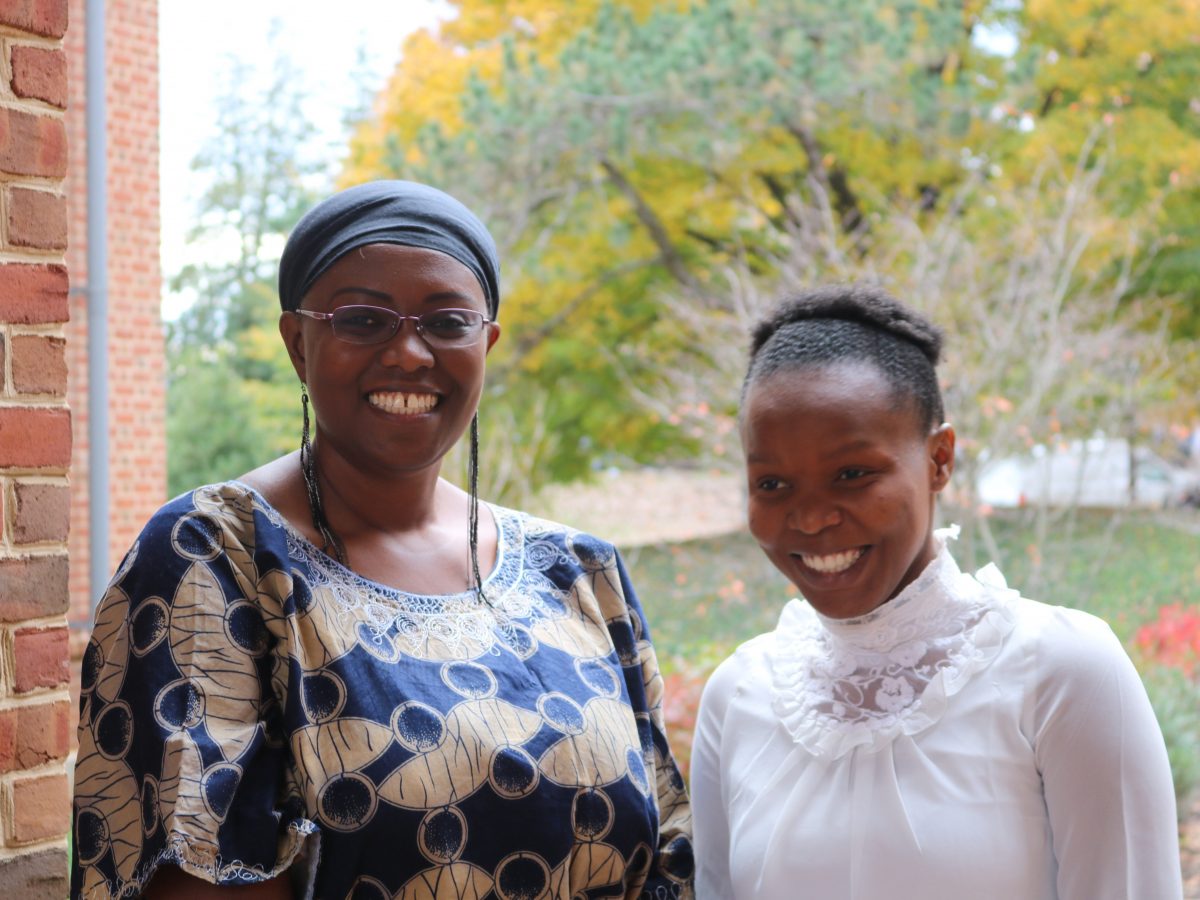Blog Posts
Test tour hosting
Flipgrid Sample
Step 5 Activities (letter identification)
Let’s practice some letter identification! CLICK on each example of the letter you find.
This advert comes from the popular Jordanian series الجار قبل الدار about the misadventures of an American living in Amman, and the Jordanians who tolerate him.
الجار قبل الدار is a commonly used phrase to mean, “the neighbor before the house” ie it’s more important to choose good neighbors than a good house.
H5P Sample: Course Presentation (Hokkaido, Japan)
H5P sample created by Tessa Short, UVA Curry School graduate student
H5P Example: ESL Phrasal Verbs
H5P sample created by Tessa Short, UVA Curry School graduate student
H5P Example: Interactive ESL grammar, vocabulary, and listening
H5P sample created by Tessa Short, UVA Curry School graduate student Infusing creativity into your language study
Perusing through paragraph after paragraph in your language textbooks becoming a drag? Does each flip of a flash card further immerse you in boredom? If so, try to incorporate some active thinking and creativity into your language study! Here are some ways to creativize your language learning.
Journaling to reinforce learning, keep close to your goals, and surprise yourself with the breadth of your progress
Journaling is something most of us are at least a little familiar with, right? A journal is a written reflection on the experiences and feelings that constitute your everyday life– journaling gives the writer a chance to consolidate their memories of each day; over time, that collection of experiences and feelings can be reviewed to see the trends and changes in your life over weeks, months, and potentially years.
So, why not bring journaling into your language study? Taking time to reflect on your language learning experiences daily or weekly provides moments when you can write down both language concepts that confused you and those that you overcame a milestone to understand. By writing about these concepts, you reinforce your understanding of them and supplement your ability to recall those concepts. In addition, a journal can be a good place to reflect on your progress toward your language goals. Learning another language comes with its fair share of moments when you want to take an *extended* break, but constantly reminding yourself of your language goal and gauging your progress toward it is a good method to keep those thoughts at bay. To further reinforce language development, journal entries can be written in your target language and read aloud to yourself to better your speaking skills.
Lastly, keeping a journal for language learning is a great way to see all of the progress you have made toward your language learning goal! Sometimes, language learning can feel like it’s going at a snail’s pace, especially once you have reached an intermediate level in the language. So, when you hit a plateau, imagine how encouraging and motivating it would be to flip through the pages of your journal and see all that you have been able to learn!

Creating a visual and spoken family tree
No matter where you’re traveling, or what you’ll be doing there, you’re sure to be asked about your family and relationships! Here’s an activity to help you prepare to introduce your family.
Task: Create visual and spoken family trees that are as complex as your current language proficiency can take you! Once you’ve created your visual tree (on paper, online, etc), practice speaking about it. Record yourself presenting your tree (you don’t need a script for this), and then watch it and see where you’d like to improve. Record multiple times, until it feels reasonably easy to do. IMPORTANT: come back and do it again the next day.
Depending on your level, your trees might include son/daughter/father/mother/partner, or might get more complex (child/adopted/divorced/married/black sheep, etc).
Why this is useful:
o The experience of finding the right vocabulary and creating a visual tree of relationships, gives you a lot of opportunities to see and say the vocabulary.
o Making more than one tree (for example, one for you, one for your partner, one for a TV character you love) lets you repeat and reinforce the vocabulary in slightly different contexts.
o Travel tip: be sure you have pictures of the people in your tree, to take with you when you travel.
Read, read, read!
This tip may seem simple, but it is nonetheless crucial for learning another language: read, read, read as much as you can in your target language! Doing so will not only inform you about whatever you are reading about, but it will introduce you to new vocabulary in the meaningful context of what you are reading (this is incredibly important to language acquisition– this help the new vocabulary stick!) and reinforce concepts you are learning about grammar and the natural flow of your target language.
Don’t feel pressured to pick up a full-length novel, either. Sure, that can be a milestone in language learning, but start at shorter readings on topics that you find interesting and want to learn more about. For instance, maybe search through your favorite social media site that is written in your target language and read its post, or find a blog in your target language that always talks about your latest pop culture obsession.
In the name of extra practice, you can synthesize your reading into short summaries written in your target language– this will bolster not only your understanding of what you read about, but also of your target language!
UVA welcomes Fulbright Swahili TA Edith Kachia
In August 2018, the Swahili language program in the Department of African American and African studies welcomed Edith Mwevezi Kachia as a Fulbright Foreign Language Teaching Assistant for the 2018-19 academic year.

Kachia, a native of Kenya, brings a wealth of cultural insights, linguistic knowledge, and enthusiasm to her new life on grounds.
Kachia currently teaches beginning Swahili language under the direction of Anne Rotich, Assistant Professor of African American and African Studies, who spearheaded the effort to bring an FLTA to the UVA Swahili program. Alongside teaching, she leads Swahili conversation tables, and has developed cultural events related to Swahili cultures, including a Swahili film night near the end of the semester.
It Took a Village
Rotich, who also heads the UVA Swahili program, worked throughout Spring 2018 to request a Swahili-speaking assistant via the Fulbright FLTA program. The

FLTA program, a long-standing initiative of the US Department of State, places international teaching assistants at hundreds of US universities annually. With the support of The Carter G. Woodson Institute for African American & African Studies’ Director, Deborah McDowell, and Associate Dean Francesca Fiorani, Rotich submitted a successful application in Spring 2018. Kachia is only the second FLTA to be placed at UVA (the first was an Urdu language FLTA, in 2013).
Of the Fulbright FLTA application process, Rotich says “Arranging for Edith to come to UVA took a whole village, to plan and ultimately bring her here!” That village–from Carter Woodson, the International Studies Office, and other partners across grounds–have supported Kachia in getting set up with office space, locating housing, and settling in to Charlottesville. Though the application and supervisory responsibilities are considerable, the benefits outweigh the costs, and Rotich is considering seeking FLTA support in the future.
Expanding Opportunities for Meaningful Learning
The opportunity for increased interaction with a native speaking educator—particularly of a less-commonly taught language such as Swahili—is a key benefit of the FLTA program. FLTA participants hold degrees in English, Education, and related fields, and often have significant work experience as educators. For students of languages with relatively few textbooks and resources, having a trained instructor to learn from can make a major difference. With Kachia’s presence, the Swahili program is able to both deepen student learning, through increased language contact, and expand it, by introducing more students to Swahili cultures across grounds. Kachia recently gave presented on contemporary Kenyan music in Rotich’s Swahili Cultures course—a course that might not have been offered without Kachia’s addition to the teaching team.
Kachia is especially interested in creating discussion around cultural perspectives and practices, and often brings up cultural issues in class. As an example of a cultural perspective that may be new to UVA students, she notes that she refers to her father’s brother not as “uncle” but as “baba” (“father”) because “For us, you understand that you are a child of your community, not just of your parents.” Introducing such perspectives, and asking students to engage with them, allows Kachia to create space for deeper intercultural understanding and communication.
Studying at UVA: New Courses and Opportunities
Kachia’s teaching and learning experiences in the US extend well beyond her Swahili classroom, as she adjusts to life in Charlottesville and to being both an instructor and a student in the US educational system. Fulbright FLTAs joining US universities are required to enroll in two university courses per semester, so Kachia opted for one course in Women’s Literature, and another in Black Queer Culture. “Black queer culture is a course that is not taught back in Kenya, because it is controversial. Therefore, I wanted to learn more,” she says. With a smile she recalls a meaningful experience in the course, when Professor Timothy Griffiths asked students to consider the song that described them best. “Immediately, a song started in my mind: Girl Power by Cheetah Girls!”
Fulbright FLTAs joining US universities are required to enroll in two university courses per semester, so Kachia opted for one course in Women’s Literature, and another in Black Queer Culture. “Black queer culture is a course that is not taught back in Kenya, because it is controversial. Therefore, I wanted to learn more,” she says. With a smile she recalls a meaningful experience in the course, when Professor Timothy Griffiths asked students to consider the song that described them best. “Immediately, a song started in my mind: Girl Power by Cheetah Girls!”
Eager to get the most of her time at UVA, Kachia says “During my year at UVA, I am looking forward to learning and participating in many American cultural experiences and opportunities that may come my way. I look forward to sharing cultural experiences with my Swahili students, meeting new friends, learning more about things that I love, and trying new things.”
–Hope Fitzgerald, Language Commons




